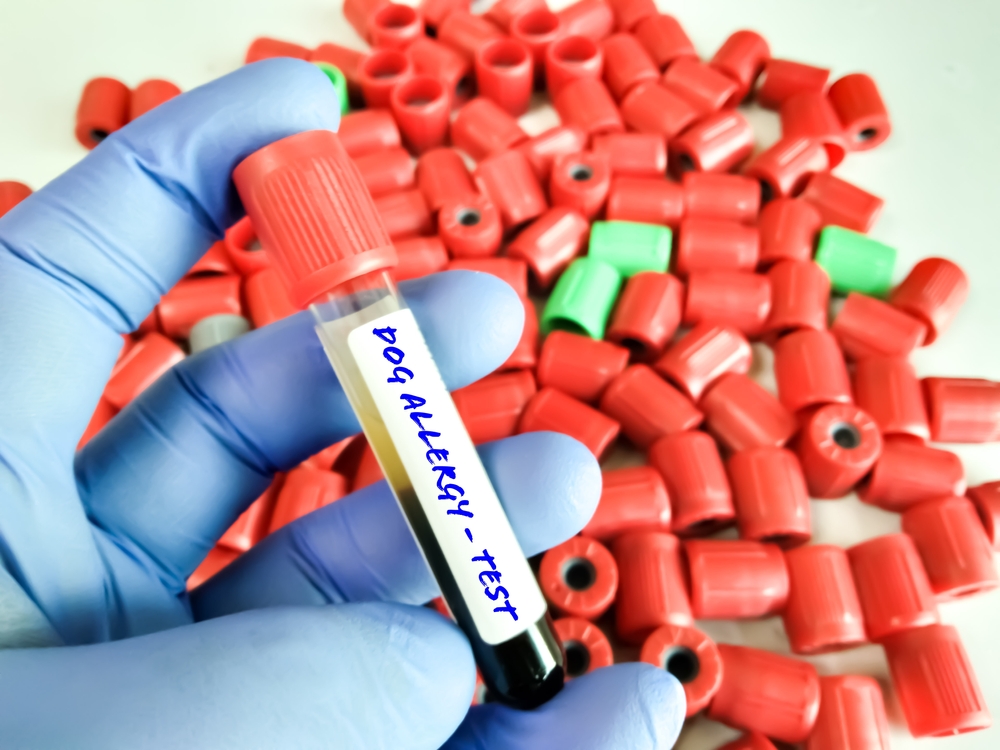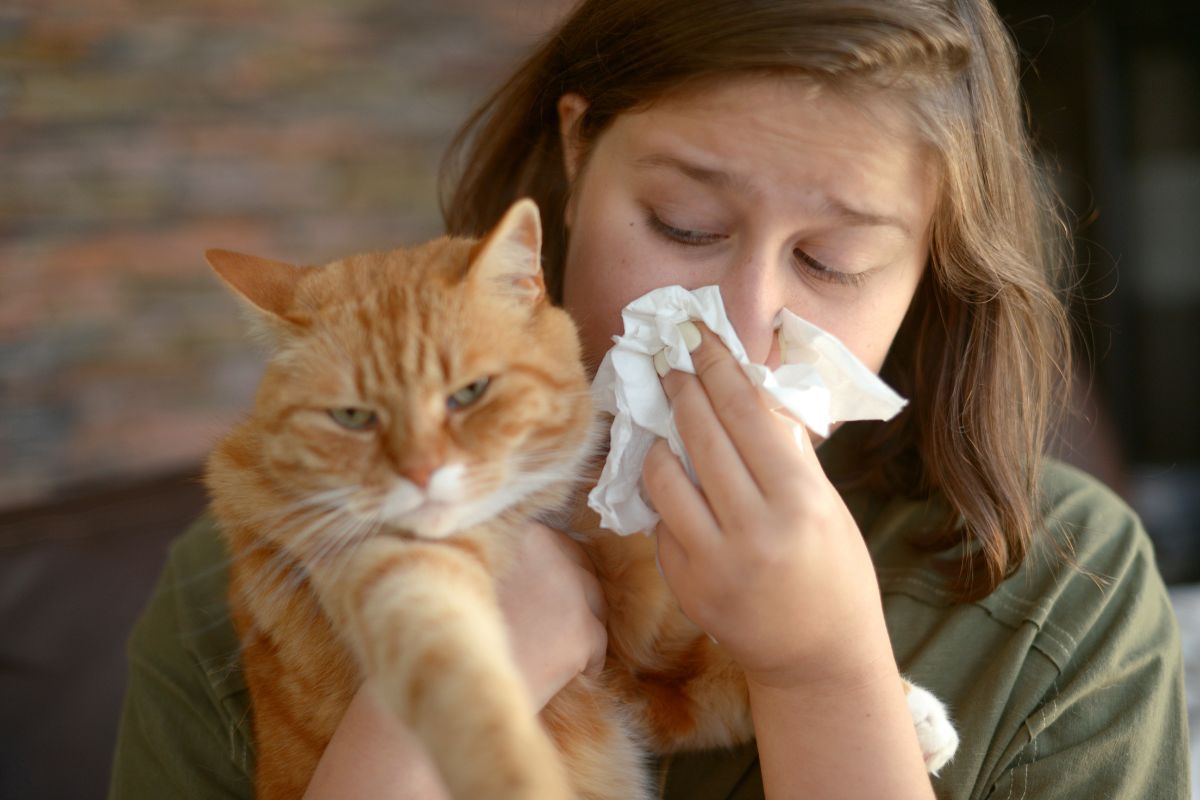
Pet Allergy Treatment
Pet allergy is a common condition that affects many people. It is an allergic reaction to proteins found in the saliva, urine, or dander of furry animals. Pet allergens can cause nasal congestion, stuffy nose, and other symptoms in people with allergies. Allergy sufferers are particularly sensitive to pet dander, which can be present at lower allergen levels than other common allergens. Symptoms of pet allergy can include sneezing, coughing, itchy eyes, and skin rash. Treatment typically involves avoiding exposure to pets as much as possible and taking medication to reduce symptom severity.
- Benefits of getting Pet Allergy Treatment
- Pet Allergy Symptoms
- Common Causes of Pet Allergies
- Tips for Minimizing Exposure to Pet Allergens
- Managing Pet Allergy Symptoms with Medications
- Finding an Experienced Doctor to Diagnose and Treat Pet Allergy Conditions
- Schedule your consultation
- Non-Medical Alternatives for Controlling Pet Allergy Symptoms
- Frequently Asked Questions about Pet Allergy Treatment
Benefits of getting Pet Allergy Treatment
Pet allergy treatment can provide significant benefits to people who suffer from allergies or asthma. Allergens from cats, guinea pigs, and other furry animals can cause a variety of uncomfortable symptoms such as itchy nose, coughing, sneezing, and hair loss. Pet allergy testing is important to determine the best possible treatment for pet allergies.
Treatment may include allergen avoidance measures such as changing litter boxes more often or keeping pets out of certain rooms in the house. Medications such as antihistamines or corticosteroids can also help reduce the severity of symptoms.
In addition to reducing symptom severity, pet allergy treatment can also prevent long-term complications associated with pet allergies. Pet dander, which is pieces of dead skin cells and pet hair that are shed by animals, can trigger asthma attacks in some individuals and contribute to food allergies in others.
Regular allergy treatments may also help reduce skin conditions caused by bacteria or parasites that thrive on pet fur and saliva. Proper pet care and hygiene will also help reduce the risk of developing allergic reactions to pets; regular bathing and brushing of pets will help remove allergens from their fur.

Pet Allergy Symptoms
Pet allergies can trigger a range of symptoms impacting the eyes, skin, nose, throat, and even breathing. Common pet allergy symptoms include:
Eye Symptoms:
- Itchy or watery eyes
- Redness and swelling (allergic conjunctivitis)
- Resemblance to chronic dry eye or pink eye
Nose and Throat Symptoms:
- Allergic rhinitis
- Excessive mucus production
- Runny nose
- Mucus irritation causing throat discomfort, coughing, or throat clearing
Skin Symptoms:
- Itchy skin
- Red patches
- Hives
- Result from pet contact or environmental allergen exposure
Breathing-Related Symptoms:
- Severe cases can lead to asthma symptoms
- Wheezing
- Breathing difficulties
- Chest tightness

Common Causes of Pet Allergies
The most common cause of pet allergies is a person-to-person transmission of proteins found in the saliva, urine, or dander of animals. These proteins are known as allergens and when inhaled or ingested by a person with allergies they can trigger an immune system reaction. This reaction causes a person’s blood pressure to drop, which can result in severe reactions such as hives or difficulty breathing. There are several types of pet allergies, including cat allergies, dog allergies, guinea pig allergies, mice allergies, and bird allergies. Diagnosing these different types of pet allergies requires medical testing from a professional allergist.



Tips for Minimizing Exposure to Pet Allergens
It is not always possible to avoid exposure to pet allergens, but there are some steps that individuals can take to reduce their exposure. One of the best ways to control pet allergens in an indoor environment is by using air cleaners such as HEPA filters. These filters can capture airborne allergens, such as cat dander and other particles, that may be present in the home. In addition to air filters, people with pet allergies should consider taking antihistamine pills before coming into contact with animals or spending time outdoors. This may reduce common symptoms of pet allergies including nasal congestion and itchy eyes.
People with asthma and other respiratory conditions should limit their minutes of exposure if they find themselves around animals that trigger symptoms. Additionally, it is important to thoroughly clean your home on a regular basis to remove visible dust and animal dander that has accumulated over time. By following these simple tips, people with pet allergies can continue living their daily lives without their allergies becoming a hindrance.
Managing Pet Allergy Symptoms with Medications
Various medication options exist to control pet allergy symptoms, including OTC and prescription drugs, immunotherapy, antihistamines, corticosteroids, and nasal sprays.
OTC Medications
Antihistamines and decongestants can alleviate pet allergen reactions. Seek an allergy specialist’s guidance for chronic or severe cases.
Antihistamines and Corticosteroids
These ease inflammation and itching through oral tablets, creams, or ointments.
Prescription Drugs
Prescription drugs like leukotriene modifiers (e.g., montelukast) reduce inflammation and airway narrowing. They suit moderate to severe allergies or inadequate OTC response.
Nasal Sprays
Antihistamine nasal sprays lessen nasal inflammation, available OTC or by prescription based on symptom intensity. Pet allergy sprays with prescription are typically more potent.
Immunotherapy
Allergy shots gradually expose individuals to allergens, lessening sensitivity and allergic reactions in the long term.

Finding an Experienced Doctor to Diagnose and Treat Pet Allergy Conditions
Penn Medicine Becker ENT & Allergy provides comprehensive allergy care for adults and children. Our board-certified allergy specialists will diagnose, educate, and help their patients manage allergies to pets and other things. Seeking a qualified allergy specialist is central to getting an appropriate, effective treatment plan.
Schedule your consultation
Non-Medical Alternatives for Controlling Pet Allergy Symptoms
In addition to medical treatments, there are several non-medical alternatives for controlling pet allergy symptoms. These include:
Regular Vacuuming
Using a vacuum with a double or micro-filter bag reduces pet allergens. Vacuum at least weekly, focusing on pet-frequented areas.
Air Conditioners and Dehumidifiers
Devices with HEPA filters improve air quality by reducing humidity and circulating cleaner air.
HEPA Filters
Employ high-efficiency particulate air (HEPA) filters in air purifiers and HVAC systems to remove pet allergens from the air effectively.
Frequent Linen Washing
Wash bed linens and upholstered furniture frequently using hot water and mild detergent.
Pet Bathing
Regular pet bathing decreases dander and saliva allergens. Brush them outdoors to prevent indoor allergen spread.
Hard-Surface Flooring
Swap carpeting for hard-surface flooring to prevent allergen accumulation.
Pet-Free Zones
Keep pets out of bedrooms and major living spaces to minimize allergen concentrations.
Allergy-Proof Covers
Use covers on mattresses and pillows to prevent allergen penetration and reduce exposure.

Pick one of our convenient locations
for your Pet Allergy Treatment
Why Choose Our Specialists?
- Dr. Elias Akl, is a distinguished allergist and immunologist based in Philadelphia. He holds board certifications in Allergy and Immunology as well as Internal Medicine, showcasing his expertise in multiple medical disciplines. Dr. Akl is not only board-certified in internal medicine but also a Fellow of the American Academy of Allergy Asthma and Immunology (FAAAAI).
- Dr. Kathryn Edwards, Director of Allergy & Immunology at The Penn Medicine Becker ENT & Allergy Center, is a board-certified allergist and immunologist who specializes in the diagnosis and treatment of allergies, food allergies, skin conditions, and asthma. She is a highly trained physician with extensive experience in the military, where she served as a pediatrician and chief of Allergy/Immunology. Dr. Edwards provides care for patients of all ages, from neonates to geriatrics.
- Dr. Naba Sharif is a highly skilled board-certified Allergist and Immunologist with expertise in diagnosing and treating allergies, including environmental and seasonal allergies, food allergies, and asthma. She received her medical degree from SUNY at Stony Brook School of Medicine, completed a Pediatrics residency at Hasbro Children’s Hospital of Brown University, and pursued a fellowship in Allergy and Immunology at the North Shore-Long Island Jewish Health System. She practiced as a Pediatrician and Allergist-Immunologist at Kaiser Permanente in Washington DC, was recognized as a Top Doctor by Washingtonian Magazine from 2016 to 2020, and is a Fellow of the American Academy of Allergy, Asthma & Immunology and the American College of Allergy, Asthma & Immunology. Dr. Sharif is committed to community service, health education, empowerment, and advocacy for the underprivileged.
- Dr. Jamie Zacharias is a highly accomplished and board-certified Allergist and Immunologist hailing from South Jersey. She pursued her education in her hometown, graduating from Bishop Eustace Preparatory School, and furthered her academic journey by earning her bachelor’s and medical degrees from Drexel University and the College of Medicine in Philadelphia, PA. Dr. Zacharias continued her medical training with an Internal Medicine internship and residency at Drexel University College of Medicine/Hahnemann University Hospital. Following this, she completed a comprehensive Allergy and Immunology fellowship at Penn State Hershey Medical Center, where she actively engaged in asthma research, particularly focusing on patient demographics and phenotyping. Dr. Zacharias holds memberships in esteemed organizations such as the Pennsylvania Allergy and Asthma Association, the American Academy of Allergy, Asthma, and Immunology, and the American College of Allergy, Asthma, and Immunology. Her specialization encompasses the diagnosis and treatment of various conditions, including asthma, immunodeficiencies, seasonal and environmental allergies, allergic reactions (including drug and food allergies), and skin conditions such as hives and eczema. Dr. Zacharias is dedicated to providing care across a wide age spectrum, from pediatric to geriatric patients, and she is excited to contribute to the well-being of her community where she has deep roots.
Frequently Asked Questions about Pet Allergy Treatment
In this section, we will address some common questions related to pet allergy treatment to help you better understand the available options and make informed decisions about your care.

